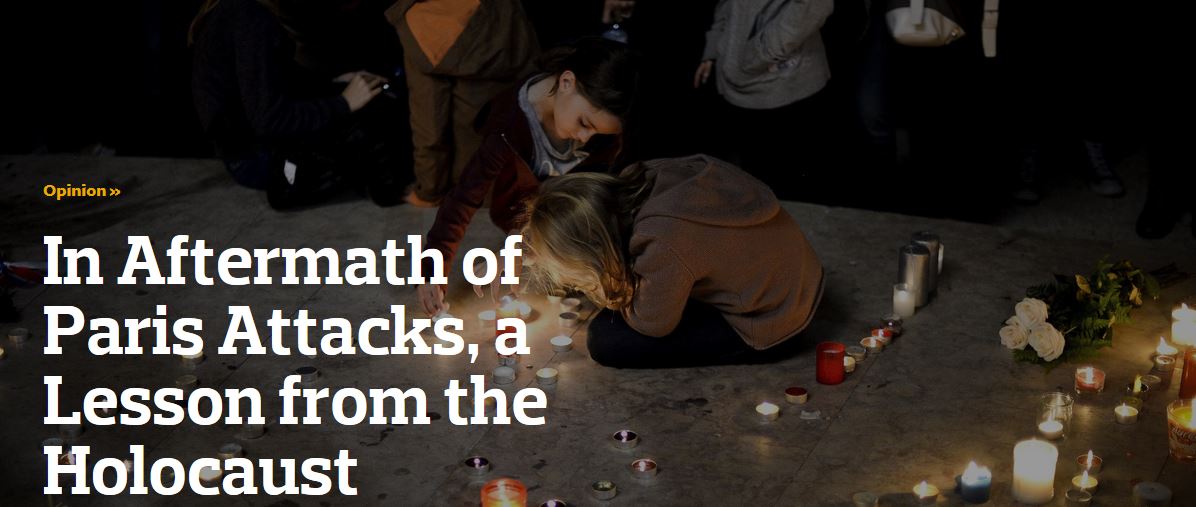In Aftermath of Paris Attacks, a Lesson from the Holocaust
As media attention focuses on the question of whether any of the
Paris attackers entered Europe as refugees, I offer a few thoughts.

First, it is important to recognize there is a risk that a small
number of extremists might infiltrate refugee flows. Advocates for
generous asylum policies — of which I am one — should acknowledge this.
Addressing it calls for appropriate resources to be devoted to the
challenge. Moreover, screening will never be 100% successful. It never
is.
The broader question, however, is whether fear of a few evil men (or
women) will lead us to sacrifice our basic moral commitment to fellow
human beings fleeing war, oppression and deprivation. I, for one, am not
prepared to grant ISIS a veto over refugee policy or humanitarian
obligations.
I am equally confident that the overwhelming majority of refugees
will, if given a chance, prove to be productive members of their new
societies who are grateful for the asylum they have been granted. Almost
all of the research on Western refugee absorption shows net, long-term
positive effects.
Goodness knows that multicultural Montreal, for example, is a much
better place for having accepted those fleeing war and instability in
Lebanon, Haiti, Rwanda, DR Congo and many other places besides. There
certainly wouldn’t be such an excellent choice of shawarma restaurants
without them.
During World War II there was also a real risk that among those
fleeing war and Nazi oppression there might be spies and fifth
columnists. Indeed, some were.
I am enormously grateful, however, that fear of that possibility did
not lead the authorities to turn back a young boy who arrived in England
with his parents in May 1940. He had made a desperate and a perilous
journey from the Netherlands by road and sea, a bullet hole in his
jacket from being strafed by the Luftwaffe en route.
Had he been turned back, I might not be here to write this.
That young boy was my father.
Rex Brynen is a professor of political science at McGill University.


